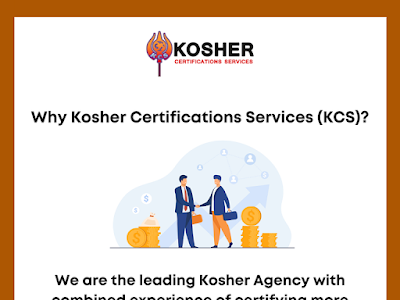
Kosher Certification
In today’s world, consumers are more mindful than ever about what they eat. They look for labels that offer reassurance, and one label that stands out is Kosher Certified. But what does it actually mean? And why are so many businesses choosing to get their products certified?
Let’s explore Kosher Certification in simple terms—what it is, how it works, and why it matters to producers and shoppers alike.
What Does “Kosher” Really Mean?
The word “kosher” comes from Hebrew and means “fit” or “acceptable.” In food terms, it refers to products that meet the dietary guidelines found in Jewish law, also known as kashrut. These laws outline which foods are permitted and how they must be prepared.
Here are a few core principles of kosher food:
-
Only certain animals, such as cows and chickens, are allowed.
-
Forbidden foods include pork and shellfish.
-
Meat and dairy must never be cooked or eaten together.
-
Animals must be slaughtered in a humane, ritual-specific way.
As a result, kosher food isn’t just about ingredients—it’s also about process and purity.
What Is Kosher Certification?
Kosher certification is a formal approval given by a rabbinic authority or agency. This process confirms that a product meets all kosher requirements—from ingredient sourcing to equipment usage and final packaging. Once approved, the product carries a recognizable kosher symbol, such as OU, OK, Star-K, or KOF-K.
These symbols help consumers easily identify which products are kosher, even in large supermarkets or when shopping online.
Why Does Kosher Certification Matter?
While it serves the needs of Jewish consumers, Kosher Certification also benefits a much wider audience. In fact, many people who purchase kosher products do so for reasons that go beyond religion.
Here’s why businesses pursue certification:
-
Builds consumer trust – The certification process is detailed and strict, which gives customers peace of mind.
-
Expands market reach – Kosher products appeal to a range of dietary needs, including vegan, vegetarian, halal, and allergen-sensitive diets.
-
Boosts brand credibility – Products with kosher symbols are often viewed as cleaner, safer, and higher in quality.
-
Supports global exports – Many international buyers require kosher certification as part of their quality control standards.
As food safety and consumer expectations rise, more companies see Kosher Certification as a smart investment—not just a religious service.
How Does the Certification Process Work?
Getting certified involves a few key steps:
-
The company applies and submits full details about ingredients and production methods.
-
A rabbinic inspector visits the facility to evaluate compliance.
-
If approved, the product receives certification and the company can use the kosher symbol.
-
The certifying agency continues with regular inspections to ensure ongoing compliance.
This process helps businesses maintain high standards and meet consumer expectations consistently.
Conclusion
Kosher Certification represents more than just a dietary label. It’s a mark of quality, integrity, and care. For consumers, it offers confidence. For businesses, it opens new opportunities and strengthens brand reputation.
As food trends evolve and global standards tighten, kosher certification remains a trusted signal of excellence—welcoming, reliable, and respected by many.



